Using Probability Theory to Improve Your Online Roulette Strategy
Introduction to Probability Theory
Understanding probability theory can help you improve at online roulette. By learning some basics, you can increase your odds of winning. Here are the main concepts to know:
- Probability: The likelihood of an event happening.
- Randomness: How outcomes are determined by chance.
- Expected Value: The average outcome if an event is repeated multiple times.
- Variance: How much your results can differ from the expected outcome.
Probability is the basis of any gambling plan. It shows how likely an event will happen. For instance, the chance of landing on a single number in roulette is 1 out of 37 in European roulette and 1 out of 38 in American roulette. Knowing these chances can help you make smarter choices.
Randomness is important in roulette. Each spin is separate from the one before it. This means that what happened in previous spins does not change what will happen in the next spin. Knowing this helps you avoid thinking that a number is "due" to win just because it hasn't come up recently.
Expected Value is an important idea. It shows the average result you can expect over many tries. For example, betting on red or black in a game has almost a 50% chance of winning, but because the casino has an advantage, you will probably lose money in the long run. By calculating the expected value of different bets, you can decide which bets are better to make.
Understanding variance can help you manage your gambling money better. High-variance bets are less likely to win but give big rewards. Low-variance bets win more often but give smaller rewards. Balancing both types of bets can make your overall gambling approach better.
Basics of Online Roulette
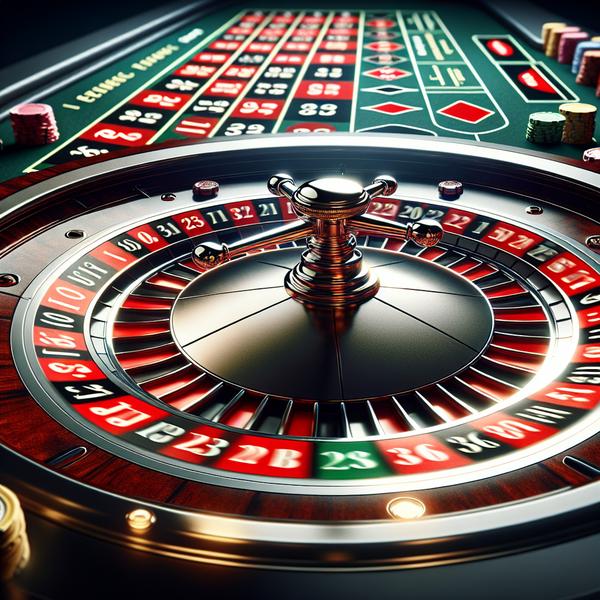
Online roulette is easy to understand. It has a spinning wheel with numbered slots. Players choose a number they think the ball will land on. The wheel has 37 slots in the European version and 38 slots in the American version.
Online roulette offers various types of bets. Here are the main kinds:
- Inside Bets: Placed on specific numbers or small groups of numbers.
- Outside Bets: Placed on larger groups of numbers like red or black, odd or even.
- Call Bets: More complex and often available in more advanced roulette games.
Knowing the house edge is important. European roulette has a house edge of 2.7%. American roulette has a higher house edge of 5.26% because it has an extra slot. This decreases your chances of winning.
Play free games to practice. Many online casinos have demo versions. These games help you learn how to play. You can also try out strategies without spending real money.
Understanding Roulette Odds

Knowing roulette odds is important for improving your online gambling strategy. Roulette is a game of luck, but understanding the odds can help you make smarter choices. Here are the basic odds for different types of bets in roulette:
- Single-number bet: 35:1
- Split bet: 17:1
- Street bet: 11:1
- Corner bet: 8:1
- Line bet: 5:1
- Dozen bet: 2:1
- Column bet: 2:1
- Even-money bet: 1:1
Betting on a single number, called a straight-up bet, pays 35:1, which is the highest payout. However, the chances of winning are very low. The probability of hitting a specific number on a European roulette wheel is 1 in 37. For American roulette, it’s 1 in 38 because of the extra double zero. So, while the potential payout is high, the risk is also high.
Bets like red/black, odd/even, and high/low have the best chances of winning. Although the payout is 1:1, these bets cover almost half the possible results (18 out of 37 in European roulette, 18 out of 38 in American roulette). This makes them a safer choice for players who want steady, smaller wins.
Knowing the house edge is important. In European roulette, the house edge is about 2.7%. In American roulette, it’s around 5.26% because of the extra double zero. This means the casino will likely win a small part of each bet over time. Understanding this can help you manage your money better.
Expected Value in Betting
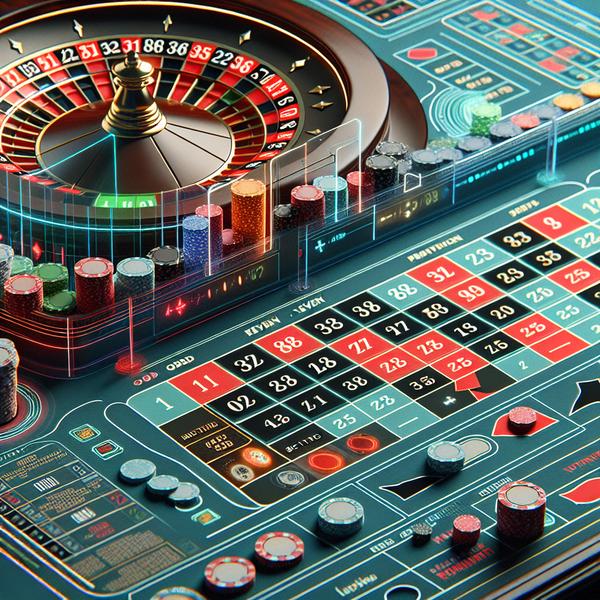
Expected Value (EV) is important for online roulette betting. EV helps you see what you can win or lose in the long run. Here's a simple way to calculate EV:
- Identify all possible outcomes.
- Assign a probability to each outcome.
- Multiply each outcome by its probability.
- Sum these values to get the Expected Value.
Knowing the Expected Value (EV) helps you place smarter bets. In roulette, a single-number bet wins with a probability of 1/37 in European roulette and 1/38 in American roulette. The payout for this bet is 35 to 1. For American roulette, the EV is -5.26%, and for European roulette, it is -2.7%, meaning you will, on average, lose a small percentage of your bet each time you play.
It's important to know that the casino always has an advantage. This advantage is built into the expected value, or EV, formula. Casinos profit because the EV works in their favor. Even with a plan, the EV means that over time, the casino will usually win more money than you.
To improve your strategy, always check the expected value (EV) before betting. Bets with a higher EV can reduce your losses. Keep in mind that EV does not ensure short-term wins; it’s about the long run. Deciding based on EV can help you win more over time.
Our latest online casino reviews (2024)
Common Betting Systems Analyzed

Gamblers often use different strategies to improve their chances in online roulette. Some popular ones are Martingale, Fibonacci, Labouchere, and D’Alembert. Each strategy has its own way of working, plus points, and downsides. Knowing these can help you pick the one that might best support your luck-based plans.
- Martingale System: In this system, players double their bets after a loss, aiming to recover their losses with a single win.
- Fibonacci System: This method follows a sequence where each bet is the sum of the two preceding bets.
- Labouchere System: Players create a betting line and cross off numbers at each end after a win.
- D'Alembert System: This involves increasing bets by one unit after a loss and decreasing by one unit after a win.
The Martingale System is easy to understand but comes with high risks. After every loss, the player doubles their bet to try and win back their money in one go. This method needs a lot of money and can quickly reach the maximum betting limit set by the table. It can also cause big losses if there is a long streak of losing bets.
The Fibonacci System is safer than Martingale. It uses a sequence of numbers (1, 1, 2, 3, 5, and so on). After a loss, you bet the next number in the sequence. After a win, you go back two steps in the sequence. This approach tries to balance losses, but it recovers losses more slowly than Martingale.
The Labouchere System involves starting with a list of numbers, such as 1-2-3-4. When you win, you remove the numbers at both ends of the list. When you lose, you add the amount of the lost bet to the end of the list. This method allows you to manage your bet sizes but can get complicated after several rounds. The aim is to clear all the numbers on the list to end with a profit.
The D'Alembert System means you increase your bet by one unit after losing and decrease it by one unit after winning. It's less risky than the Martingale System and aims for gradual recovery. This method is good for players who want steady and safer progress. However, a long losing streak can still cause losses.
Probability and Betting Patterns

Knowing probability can improve your online roulette strategy. It helps you estimate the chances of different outcomes. Here are key concepts about probability in online roulette:
- **House edge**
- **Payout ratios**
- **Odds** of specific bets
- **Expected value**
The house edge is how much the casino is likely to win over players. In European roulette, the house edge is about 2.7%, whereas in American roulette, it is about 5.26%. Knowing this can help you choose which roulette version to play. Always go for the one with a lower house edge.
Payout ratios show how much you can win from your bet. For instance, if you bet on a single number, you can win 35 times your bet if you get it right. If you bet on something like red or black, you win the same amount you bet. The higher the payout ratio, the higher the risk, so knowing these ratios can help you plan your bets.
The chances of winning different bets change based on the game. For example, in European roulette, the chance of winning a straight-up bet is 1 in 37. In American roulette, it's 1 in 38. Knowing these chances can help you place smarter bets. Choose bets that balance risk and reward well in your strategy.
Expected value (EV) is the average result you can expect if you place the same bet many times. A positive EV means you will likely make money over time, while a negative EV means you will likely lose money. In online roulette, most bets have a negative EV because of the house edge, but knowing this can help you control your money better. Using EV calculations regularly can improve your betting strategy for long-term play.
Maximizing Winning Chances
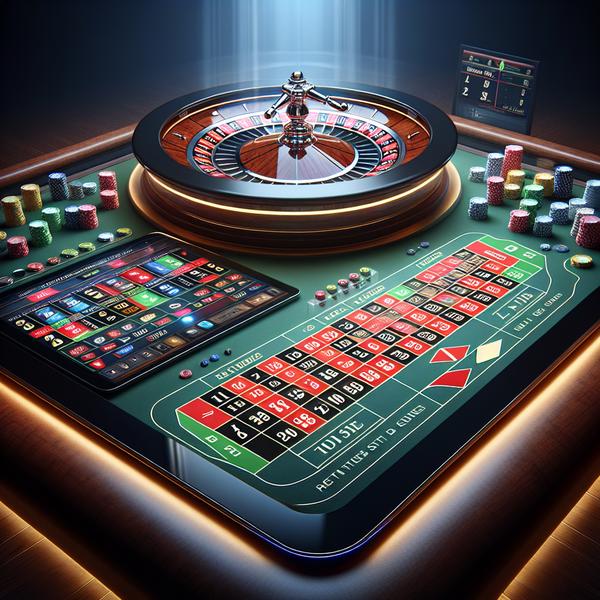
Using probability theory can really help you win more at online roulette. If you know the math behind each bet, you can make better choices. Think about these important strategies.
- Understand the House Edge: The house always has an edge, but knowing that European roulette has a lower house edge (2.7%) compared to American roulette (5.26%) can affect your choice of game.
- Avoid Single-Number Bets: Single-number bets have a high payout but extremely low probability (2.7% for European roulette). Over time, these bets are more likely to lose you money.
- Focus on Outside Bets: Bets like Red/Black, Even/Odd, and 1-18/19-36 offer nearly 50% winning chances, making them safer options.
- Use Betting Systems Cautiously: Systems like the Martingale or Fibonacci can help manage your bets but won't change the inherent house edge.
By following these tips, you can increase your chances of winning. For example, pick European roulette instead of American roulette because it has a lower house edge. This simple choice can make a big difference in your results.
Choose simple bets like Red/Black or Even/Odd. These bets give you nearly a 50% chance to win. The payout is smaller, but so is the risk. Combining safer bets with probability can help you win more often.
Use betting systems but understand their limits. The Martingale system means you double your bet after a loss. It can help recover losses, but you need a lot of money and it doesn't change the house advantage. So, use these systems carefully and stick to your budget.
Pitfalls to Avoid
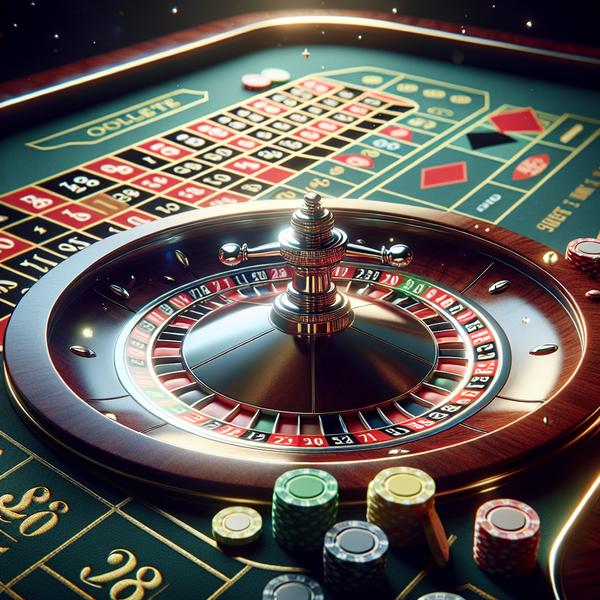
A common mistake to avoid is the gambler's fallacy. Many players believe that if a number hasn't appeared in some time, it is more likely to come up soon. This is not true and can cause big losses. Probability theory shows that each spin in roulette is independent of previous spins. Thinking that patterns exist where they don't can quickly drain your money.
A common mistake is not deciding how much money you will spend ahead of time. Without a set limit, you might keep playing to try to win back what you lost. This is especially risky in online gambling where it's easy to keep spending money.
Watch out for these common problems:
- **Chasing losses**: Trying to win back lost money can lead to even bigger losses.
- **Ignoring house edge**: Every bet has a built-in disadvantage; understanding this can prevent false expectations.
- **Overvaluing betting strategies**: No strategy can overcome the house edge in the long run.
Don't trust strategies that claim you will always win. Many of these are scams. While understanding probability can help, it's not a sure thing. Always research and think critically about any new method you find. Staying informed and careful can help you avoid these common traps.
Conclusion and Final Tips
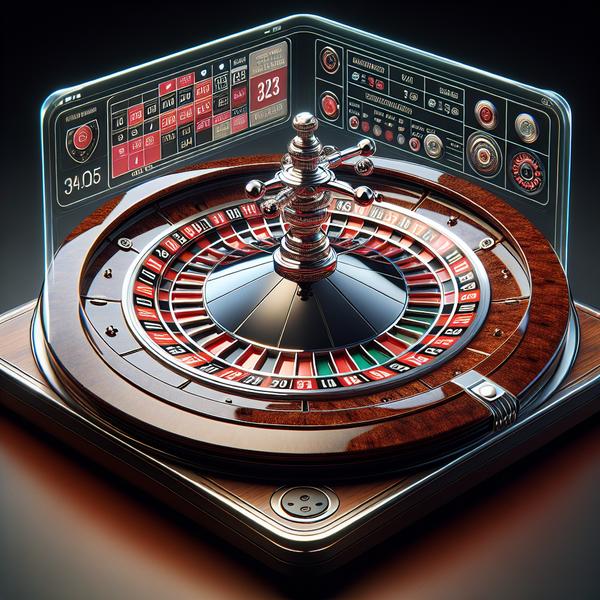
Using probability theory can help you play online roulette better. Always remember that the casino has an advantage. This means you should focus on reducing your losses rather than trying to win all the time. Strategies like the Martingale or D'Alembert can be useful, but they also come with risks.
Here are some last tips to make your online roulette game better:
- Know the different types of bets and their odds.
- Set a budget and stick to it.
- Use a strategy but be ready to stop if it isn't working.
- Maintain a level-headed approach; don't chase losses.
Managing your bankroll is important. Set aside a fixed amount of money for gambling and stick to it. If you lose that amount, stop playing. Winning can be exciting, but keep a clear head and avoid letting emotions influence your decisions.
Roulette is a game of chance. No strategy can make you win for sure. Play for fun and think of any winnings as extra. It’s important to expect that you might lose, which will make playing more enjoyable and less stressful.
Our latest online gambling guides (2024)
Latest reviews of online casinos (2024)
Share this article











The Martingale strategy is not a good choice for online roulette. It may look like a guaranteed way to win, but you can lose a lot of money very fast.